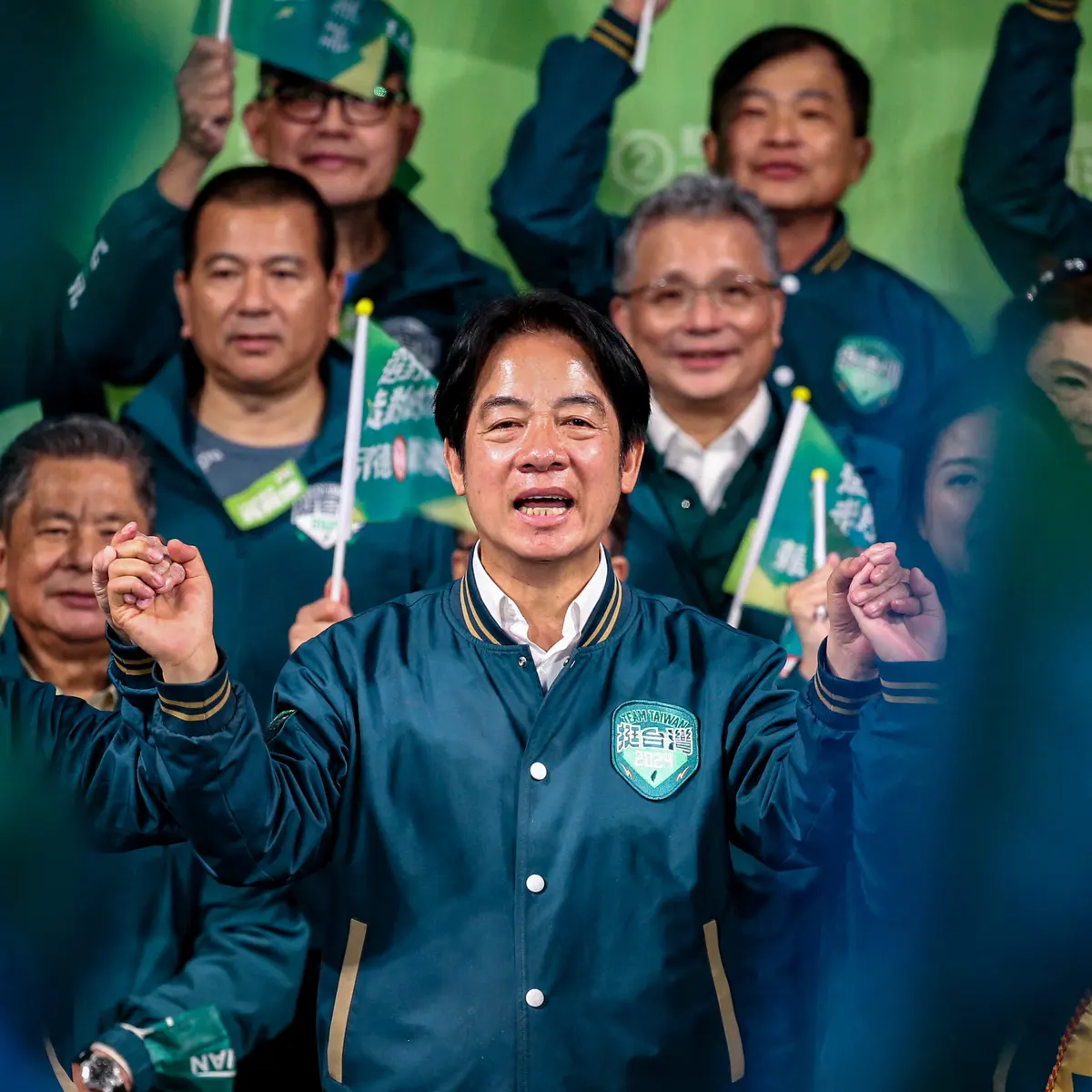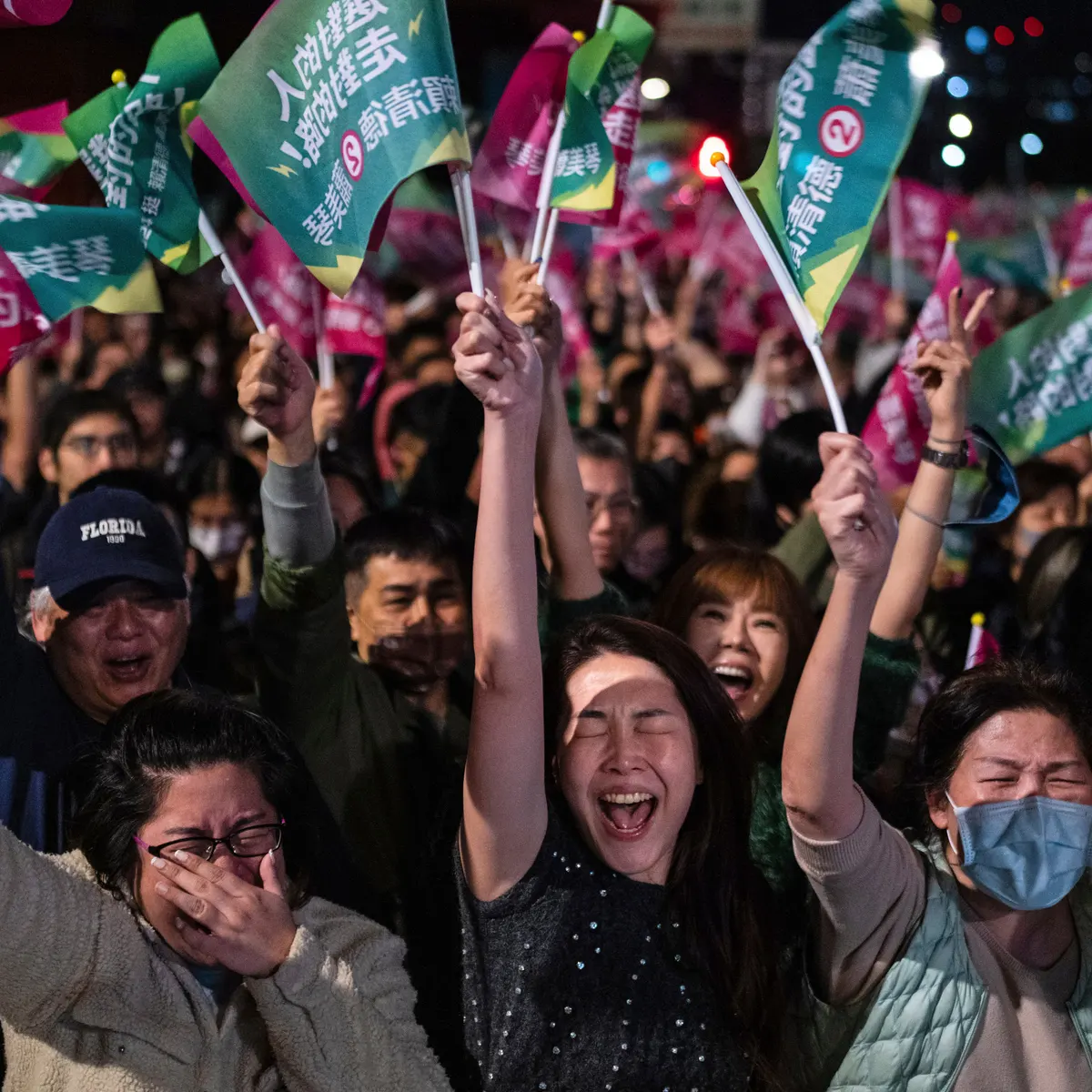Global Leaders Congratulate Lai Ching-te On Taiwan’s Presidential Win
In the aftermath of Taiwan's presidential election, global leaders congratulate Lai Ching-te on Taiwan’s presidential win, marking a historic third term for the pro-sovereignty Democratic Progressive Party (DPP).
Author:Rhyley CarneyReviewer:Paula M. GrahamJan 15, 20244.8K Shares85.1K Views

In the aftermath of Taiwan's presidential election, global leaders congratulate Lai Ching-te on Taiwan’s presidential win, marking a historic third term for the pro-sovereignty Democratic Progressive Party (DPP).
The high turnout and democratic process have garnered praise worldwide, even as Beijing expresses discontent over the ruling party's continued tenure.
Lai secured victory with over 40% of the vote, succeeding Tsai Ing-wen, the outgoing president who has held office since 2016. The international community acknowledges the significance of this triumph, considering the complexities of cross-strait relations with China.
Global Reactions
The U.S. State Department spokesperson conveyed congratulations to the Taiwanese people, emphasizing the strength of their robust democratic system. President Joe Biden, despite reiterating the U.S. stance against Taiwanese independence, commended the electoral process.
Similar sentiments echoed from the United Kingdom, the European Union, and Canada, with the UK’s foreign secretary highlighting the result as a testament to Taiwan's vibrant democracy.
China, however, voiced strong objections to the congratulatory messages from the U.S., UK, and EU, accusing them of interfering in its internal affairs.
The Chinese foreign ministry lodged "solemn representations" with the U.S., underscoring the sensitivity surrounding Taiwan and challenging the U.S. commitment to maintaining non-official ties.
Japan's foreign minister, Yoko Kamikawa, described Taiwan as an "extremely crucial partner and an important friend," leading to further objections from Beijing.
Japan's commitment to deepening cooperation with Taiwan and resolving issues peacefully through dialogue was met with protests from the Chinese embassy in Tokyo.
Taiwan's foreign ministry swiftly condemned China's comments as "fallacious," "absurd," and "not worthy of rebuttal." Rejecting China's claim that Taiwan is an "internal Chinese matter," the ministry asserted that such views are inconsistent with international perceptions and democratic values.
Challenges And Expectations
The hostile reaction from Beijing was anticipated, given its longstanding position on Taiwan as part of its territory. China's Communist Party views the DPP as separatists, and President Xi Jinping has prioritized the goal of "re-unifying" China and Taiwan.
As Lai assumes office, there are concerns about increased pressure from China, especially in the lead-up to his inauguration in May. While the reaction may be less overtly aggressive, diplomatic tensions are expected to persist.
The election also introduced a third party, the Taiwan People's Party (TPP), which split the opposition vote. This shift towards a three-party system complicates consensus-building, potentially impacting major legislation.

International Dynamics And Geopolitical Significance
The global response to Lai Ching-te's victory reflects the complex geopolitical landscape surrounding Taiwan. While allies congratulate Taiwan for its democratic resilience, China's vehement objections underscore the ongoing challenges in cross-strait relations.
U.S. Secretary of State Atony Blinken congratulated Taiwanese President Lai Xiaoping on social media for participating in free and fair elections, highlighting the strength of their democratic system.
House members, including Indo-Pacific Subcommittee Chairwoman Young Kim, Ranking Member Ami Bera, Foreign Affairs Committee Chairman Mike McCaul, and Ranking Member Gregory Meeks, also congratulated Lai and praised Taiwan for another milestone.
“„We condemn Beijing’s attempts to influence the elections through disinformation and military pressure and applaud the people of Taiwan for upholding democratic ideals. We look forward to working with President-elect Lai and Vice President-elect Hsiao to enhance the U.S.-Taiwan economic, cultural, and defense relationship.- House members
Final Words
Lai Ching-te's historic third-term victory in Taiwan's presidential election has sparked international recognition of the island's democratic strength.
China's objections and diplomatic protests highlight ongoing tensions over Taiwan's status.
The international community's responses reflect the delicate balance in navigating the island's geopolitical dynamics, with the evolving three-party system and commitment to democratic values shaping the narrative.

Rhyley Carney
Author

Paula M. Graham
Reviewer
Latest Articles
Popular Articles